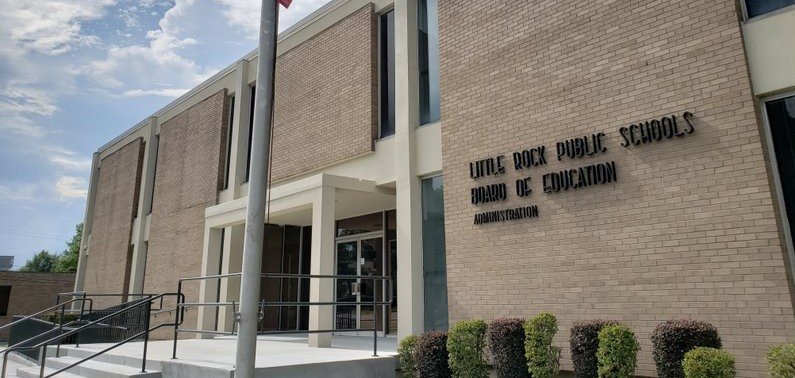The Little Rock School District dug into its reserve funds last year to meet expenses and is projected to do so again this school year but at a smaller rate that may prove to be unnecessary, Chief Financial Officer Kelsey Bailey said Thursday.
The district's Community Advisory Board voted 4-0 Thursday to endorse the district's proposed 2019-20 school year budget, which will now go to Arkansas Education Secretary Johnny Key for approval.
Key acts in lieu of a locally elected school board in the state-controlled Little Rock system. The state-appointed advisory board makes recommendations to Key on district policies, budget and personnel matters.
All Arkansas school district are supposed to submit their current school year budgets to the Arkansas Department of Education Division of Elementary and Secondary Education by Monday.
"This budget proposal adequately funds the educational priorities established ... and financially reinforces the strategies that will enable our District to continue making gains in student academic achievement while staying financially solvent," Superintendent Mike Poore said in the budget cover letter to Key.
The capital city district is projecting revenue this year of $304,539,198 and expenditures of $305,644,269, Bailey said. If the numbers hold, the district will have to take the difference from the carry-over savings from previous years.
The district ended last school year with $26.5 million in reserves, down from almost $33.9 million that was on hand at the end of the 2017-18 school year. The district's $7.4 million draw from reserves, however, was less than the $11.8 million draw that was projected at this time last year, Bailey told the advisory board. The district is projecting total reserves of about $25.7 million next June.
School districts have to be cautious about spending their reserve funds year after year to avoid being classified by the state as fiscally distressed and subject to state intervention in their business operations or even losing control to the state. The Little Rock district has been operating under state control for almost five years because of student achievement deficiencies -- not financial distress.
Last year's budget, including the expenditure of reserves, was partially the result of the district's effort to offset the end of the $37 million a year in special school desegregation aid to the district from the state. That annual aid ended after the 2017-18 school year as the result of a 2014 federal court agreement between the state and district.
The district's local tax revenue is expected to increase from $164 million last year to almost $170 million. The state aid is to increase from $86.7 million to $89.3 million, even though the state's foundation aid to the district is expected to drop from $59 million to $54 million, which is a reflection of the district's enrollment loss of 627 students between 2017-18 and 2018-19 school years.
However, the loss in foundation aid will be offset by increases in other categories of state aid, Bailey said, including an increase of $3 million, to a total of $16 million, in the enhanced student achievement funding category. That money is based on the percentage of students eligible for subsidized school meals at a school. The Little Rock district also will get more than $2 million in declining-enrollment funding from the state, which is meant to cushion the one-year impact of student enrollment drop.
Another state category of funding is the new teacher salary enhancement money, which has enabled the district to raise its beginning teacher salary to $36,000 this year, giving all teachers a $1,135 increase. That's in addition to the annual 3% step increase paid to eligible teachers for their additional years of experience. The district's most veteran teachers, who have reached the top of the salary schedule, however, are not eligible for the experience step.
The district's new expenses this year include adding a ninth grade high school program to Pinnacle View Middle School, raising the minimum wage for support staff from $9.25 to $10 an hour, about $4 million to adopt new materials for reading instruction, the restoration of medical health insurance coverage to district's drivers of special education buses, and the purchase of fixtures and furnishings for the new Southwest High School that will open next August.
Jeff Wood, the advisory board chairman, asked where Little Rock's starting salary for teachers now ranks in the state, saying that raising the beginning salary is necessary to attract and retain young, talented teachers.
Poore said the ranking will be calculated in the coming weeks, along with projected costs to raise the district's starting salary and ranking over time.
Metro on 09/27/2019
